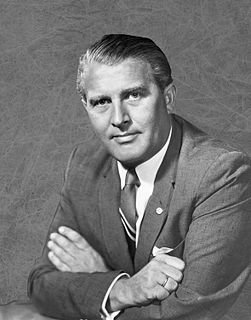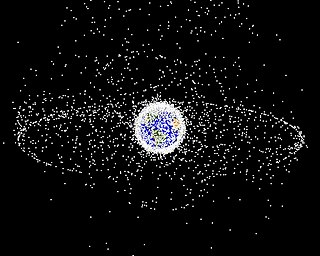 W
WArthur C. Clarke Institute for Modern Technologies (ACCIMT) is an institute for research and technology transfer in Sri Lanka. It is named after its founder patron, Sir Arthur C. Clarke, the famous British science fiction author, inventor and futurist. The institute is mainly focused on conducting research in the fields of electronics, micro-electronics, telecommunications, information technology, space technologies and robotics, and providing training for relevant industry professionals. It is one of the few institutions of this kind in Sri Lanka.
 W
WAsgardia, also known as the Space Kingdom of Asgardia and "Asgardia the Space Nation", is a micronation formed by a group of people who have launched a satellite into Earth orbit. They refer to themselves as "Asgardians" and they have given their satellite the name "Asgardia-1". They have declared sovereignty over the space occupied by and contained within Asgardia -1. The Asgardians have adopted a constitution and they intend to access outer space free of the control of existing nations and establish a permanent settlement on the Moon by 2043.
 W
WThe British Interplanetary Society (BIS), founded in Liverpool in 1933 by Philip E. Cleator, is the oldest space advocacy organisation in the world. Its aim is exclusively to support and promote astronautics and space exploration.
 W
WThe California Space Authority (CSA) was a nonprofit corporation representing the commercial, civil, and national defense/homeland security interests of California's diverse space enterprise community in four domains: Industry, Government, Academia, and Workforce. CSA was also a participating member in the Coalition for Space Exploration. It officially ceased operations on June 10, 2011.
 W
WThe Coalition for Deep Space Exploration is a United States space advocacy organization for space industry businesses and non-profit groups supporting continued government investment in space exploration.
 W
WcollectSPACE is an online publication and community for space history enthusiasts featuring articles and photos about space artifacts and memorabilia, information on past, current, and upcoming space events, space history collecting resources, and links to other space-related websites. It also provides an array of message boards where registered members can discuss various aspects of space history and the space collecting hobby; buy, sell, or trade items; or pose "what if?" historical questions. Users often abbreviate the website's name as "cS," and members often refer to each other as "cSers."
 W
WThe Florida Space Institute (FSI) is a research institute of the State University System of Florida and the University of Central Florida located in Orlando, Florida, United States. The director of the institute is Ramon Lugo III, who previously served as the director of NASA's Glenn Research Center.
 W
WFor All Moonkind, Inc. is an entirely volunteer international nonprofit organization which is working with the United Nations and the international community to manage the preservation of history and human heritage in outer space. The organization believes that the lunar landing sites and items from space missions are of great value to the public and is pushing the United Nations to create rules that will protect lunar items and secure heritage sites on the Moon and other celestial bodies. Protection is necessary as many nations and companies are planning on returning to the Moon, and it is not difficult to imagine the damage an autonomous vehicle or an errant astronaut—an explorer, colonist or tourist—could to one of the Moon landing sites, whether intentionally or unintentionally.
 W
WEvery year, the International Astronautical Federation with the support of the International Academy of Astronautics and the International Institute of Space Law (IISL), holds the International Astronautical Congress (IAC) which is hosted by one of the national society members of the IAF.
 W
WThe International Astronautical Federation (IAF) is an international space advocacy organization based in Paris, and founded in 1951 as a non-governmental organization to establish a dialogue between scientists around the world and to lay the information for international space cooperation. It has over 390 members from 68 countries across the world. They are drawn from space agencies, companies, universities, professional associations, museums, government organizations and learned societies. The IAF organizes the annual International Astronautical Congress (IAC).
 W
WThe L5 Society was founded in 1975 by Carolyn Meinel and Keith Henson to promote the space colony ideas of Gerard K. O'Neill.
 W
WThe Mars Generation is an American non-governmental nonprofit organization involved in public outreach and advocating for human space exploration and science, technology, engineering, and mathematics (STEM) education.
 W
WThe Moon Society is a space advocacy organization, founded in 2000, and dedicated to promoting large-scale human exploration, research, and settlement of the Moon.
 W
WThe National Space Institute was a space advocacy group, the first of its kind, established by Dr. Wernher von Braun to help maintain the public's support for the United States space program. It has since merged, in 1987, with the L5 Society founded by fans of the Space Colonization and Industrialization work of Dr. Gerard K. O'Neill, to become the present-day National Space Society.
 W
WThe National Space Society (NSS) is an American international nonprofit 501(c)(3) educational and scientific organization specializing in space advocacy. It is a member of the Independent Charities of America and an annual participant in the Combined Federal Campaign. The society's vision is: "People living and working in thriving communities beyond the Earth, and the use of the vast resources of space for the dramatic betterment of humanity."
 W
WSpace debris is a term for defunct human-made objects in space—principally in Earth orbit—which no longer serve a useful function. These include derelict spacecraft—nonfunctional spacecraft and abandoned launch vehicle stages—mission-related debris, and particularly numerous in Earth orbit, fragmentation debris from the breakup of derelict rocket bodies and spacecraft. In addition to derelict human-built objects left in orbit, other examples of space debris include fragments from their disintegration, erosion and collisions, or even paint flecks, solidified liquids expelled from spacecraft, and unburned particles from solid rocket motors. Space debris represents a risk to spacecraft.
 W
WOn June 3, 2004, thirteen of the United States' premier space advocacy groups, industry associations and space policy organizations teamed up to form an umbrella organization known as the Space Exploration Alliance. The primary purpose of the SEA is to support the White House's plan to refocus NASA's human space activities toward exploration beyond low Earth orbit.
 W
WThe Space Frontier Foundation is an American space advocacy nonprofit corporation organized to promote the interests of increased involvement of the private sector, in collaboration with government, in the exploration and development of space. Its advocate members design and lead a collection of projects with goals that align to the organization's goals as described by its credo.The Space Frontier Foundation is an organization of people dedicated to opening the Space Frontier to human settlement as rapidly as possible. Our goals include protecting the Earth’s fragile biosphere and creating a freer and more prosperous life for each generation by using the unlimited energy and material resources of space. Our purpose is to unleash the power of free enterprise and lead a united humanity permanently into the Solar System.
 W
WSpaceOps is an international committee organisation formed in 1992 to "promote and maintain an international community of space operations experts".
 W
WStudents for the Exploration and Development of Space (SEDS) is an international student organization whose purpose is to promote space exploration and development through educational and engineering projects.